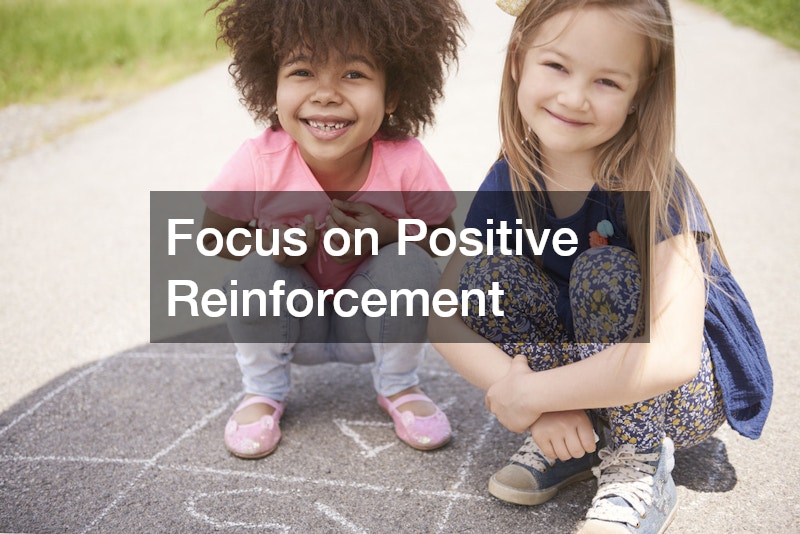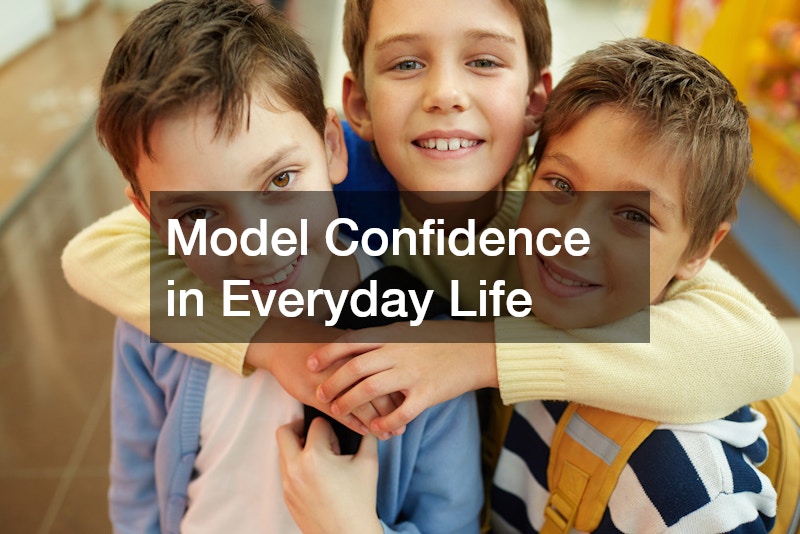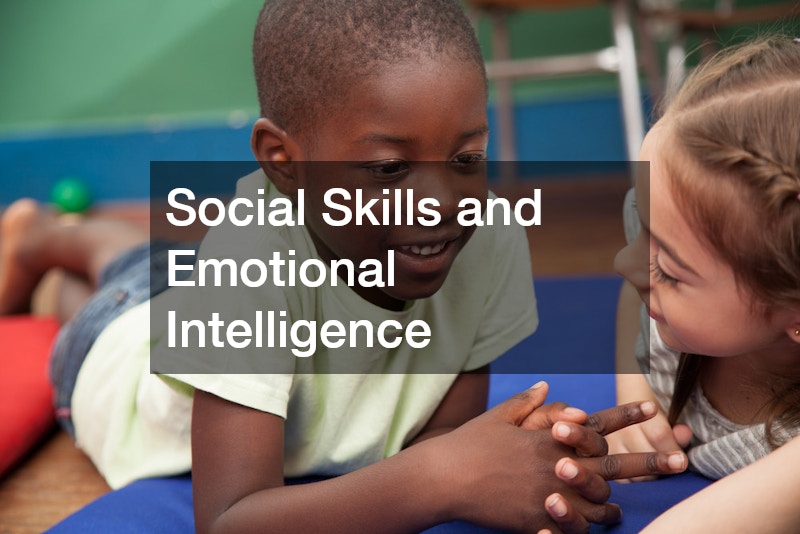Every parent deeply desires to raise children who are not only intelligent and well-mannered but also confident in who they are. Fostering confidence within a child lays a robust foundation for their future, enabling them to tackle challenges and seize opportunities as they arise. This guide aims to explore practical strategies for instilling confidence in children, ranging from creating nurturing environments to encouraging independent thought and action.
Confidence is more than just a personality trait; it is a crucial skill that affects a child’s emotional and social well-being. Parents serve as the primary role models in a child’s life, and it is essential to be aware of the impact that interactions, guidance, and even non-verbal cues can have on their self-assurance. By utilizing effective parenting techniques and resources, you can cultivate a sense of self-worth in your children that will serve them well throughout their lives.
In this extensive guide, you’ll find insightful methods and actionable tips on how to create a nurturing atmosphere for your child. From supporting their interests to teaching resilience, each strategy discussed will be aimed at nurturing confidence in your little ones. Let us embark on this journey to better home parenting, nurturing our children into confident, capable individuals.

Create a Safe and Supportive Environment
The first step in nurturing confidence in children is establishing a safe and supportive environment. Whether at daycare, during a preschool program, or in the comfort of your home, the aim is to create a space where children feel secure and valued. This can be achieved through open communication, where children are encouraged to express their feelings and thoughts freely without fear of judgment.
A nurturing environment goes beyond verbal support; it also involves creating a physically safe space. Baby-proofing your home, incorporating hurricane proof doors, and ensuring play areas are free from hazards are integral aspects of creating a protective environment. When kids are confident that their surroundings are safe, they are more likely to explore and engage without hesitation.
Furthermore, support can manifest through the presence of positive reinforcement from parents and caregivers. Celebrating small victories, be it successfully completing a school project or demonstrating kindness to a sibling, instills a sense of achievement in children. Such acknowledgment helps create a nurturing atmosphere where children are motivated to conquer challenges and develop their confidence levels.
Encourage Independence and Responsibility
Encouraging children to become independent is a vital aspect of building their self-confidence. This can be initiated by assigning simple responsibilities appropriate for their age, including organizing their toys or helping with meal preparations. Involvement in activities such as swim schools can also provide children with opportunities to learn new skills and develop a sense of autonomy.
When children are given opportunities to make choices—such as what to wear to daycare or how to decorate their room—it fosters a sense of ownership over their decisions. Encouraging children to take on age-appropriate tasks helps them see that they can accomplish things on their own. This gradual increase in responsibilities cultivates both confidence and a sense of reliability in their abilities.
Additionally, allowing children to engage in cooperative activities, such as planning a birthday party or selecting themes for event rentals, helps them learn teamwork and accountability. Such experiences teach children that their opinions matter and that they actively contribute to their environment. As they begin to successfully navigate their roles and responsibilities, their self-confidence naturally grows.

Focus on Positive Reinforcement
Positive reinforcement is a powerful tool in home parenting that can significantly impact a child’s self-esteem and confidence levels. Praising children for their efforts or accomplishments encourages them to pursue their interests, thereby building a sense of achievement. Instead of only acknowledging successful outcomes, recognize their hard work and determination as well, making them feel valued irrespective of the final results.
For instance, when children engage in activities like a mommy makeover, their willingness to try something new should be recognized, regardless of the outcome. This fosters an environment where they are unafraid to take risks because they understand that effort is valued more than perfection. Positive feedback not only motivates but also reinforces the belief that they have the capability to learn and grow.
Additionally, as children grow and begin to show an interest in self-care, teaching them to take pride in their appearance can contribute to their self-esteem. For example, encouraging a sense of personal grooming through practices like hair removal can help children feel more confident in how they present themselves. The key is to emphasize that confidence comes from within, and self-care is one of many ways to reflect that inner strength.
By consistently practicing positive reinforcement in home parenting, parents can develop a child’s self-worth and resilience. Constructive critique paired with encouragement can guide children to set and achieve higher goals while also learning from challenges. As they recognize that their attempts are valued, they will progressively develop the confidence needed to take on new experiences and challenges.
Support Your Child’s Interests and Hobbies
Supporting a child’s interests and hobbies is critical for fostering their confidence and self-exploration. When parents take an active interest in what excites their children—be it sports, arts, or science—it demonstrates that their passions are important and worth pursuing. For example, enrolling them in extracurricular activities such as swim schools is an excellent way to help them explore their interests while acquiring new skills.
Encouraging children to participate in various activities cultivates an environment of learning and growth. Whether it involves attending art exhibitions, music classes, or science fairs, exposing them to diverse interests helps them build confidence by realizing that they are capable of excelling in different domains. Supporting their endeavors—be it through event rentals for a themed party to celebrate their hobbies or a visit to a waterfront restaurant—creates lasting memories and boosts their morale.
Moreover, engaging in discussions about their interests helps children express their thoughts and feelings, further nurturing their self-identity. When children feel supported and validated, their passion for various activities can flourish, steering them toward self-assurance in their unique talents. Collectively, encouraging and participating in their hobbies plays a significant role in building lifelong confidence.

Model Confidence in Everyday Life
Modeling confidence as parents is a crucial component of effective home parenting. Children are keen observers and often mimic the behaviors they witness in their parents. When parents demonstrate confidence in their actions—whether by tackling challenges head-on, maintaining a positive attitude, or simply expressing their opinions—they implicitly teach their children how to mirror that behavior.
Moreover, embracing imperfections and demonstrating a growth mindset can show children that everyone faces struggles. By facing setbacks, like challenging situations involving urgent veterinary care for a pet or personal issues, parents can normalize the process of overcoming difficulties. This teaches children that failure is not the end but an opportunity to learn and improve, building their resilience and self-confidence.
Integrating confidence into everyday interactions also means being transparent about one’s emotions. It is essential to express feelings, whether they be of joy, frustration, or anxiety, and model how to navigate those emotions appropriately. When children see their parents handling situations with assurance, they are more likely to adopt a similar approach when faced with challenges in their lives.
Teach Resilience in the Face of Challenges
Teaching children resilience equips them with essential life skills for overcoming challenges and setbacks. Resilience can be cultivated through various exercises, such as problem-solving tasks or engaging in discussions about their feelings regarding challenging events. It’s essential to communicate that mistakes are a natural part of learning and should not be equated with failure, but rather embraced as growth opportunities.
For instance, reassuring your child during difficult times, such as after facing a disappointment in sports or academics, can transform these setbacks into valuable lessons. Helping them analyze what went wrong and how they can improve next time nurtures their problem-solving skills while reinforcing the notion that perseverance is crucial. Parents play a significant role in guiding children to overcome various obstacles, such as attending urgent veterinary care appointments, and turning these experiences into teaching moments.
Resilient children often grow up to be confident individuals, knowing they can bounce back from adverse situations. Open discussions about personal challenges faced by parents can also enhance this learning. Sharing personal stories and techniques used to navigate difficulties allows children to learn empathy and realize that everyone has struggles, ultimately fostering a supportive environment for confidence building.

Social Skills and Emotional Intelligence
Social skills and emotional intelligence play vital roles in a child’s overall confidence. By facilitating open communication and healthy interactions among peers, children learn to express themselves and build meaningful relationships. Encouraging playdates or group activities within the framework of daycare and preschool programs can be an excellent method for developing these skills.
Participating in cooperative games or team sports enhances not just social interactions but also shapes emotional competence. These interactions enable children to express their feelings, understand others’ perspectives, and practice problem-solving. Playing with peers at a waterfront restaurant or during community events cultivates camaraderie and allows children to hone their social skills in natural settings.
Additionally, addressing and discussing emotions as a family fosters emotional intelligence. Parents can initiate conversations about emotional responses to certain events, teaching children how to recognize and articulate their feelings correctly. By actively practicing emotional literacy, children can enhance their self-awareness and confidence, ultimately guiding them toward healthier relationships with themselves and others.
Healthy Habits for a Confident Body and Mind
Promoting healthy habits is integral to nurturing confidence in children. Physical well-being plays a significant role in enhancing self-esteem, and encouraging regular exercise can be an effective strategy. Whether through outdoor play, organized sports, or swimming lessons, such activities help children develop a positive self-image while fostering physical health.
A balanced diet is another fundamental component of maintaining a strong body and mind. Incorporating nutritious foods into a child’s diet, such as dehydrated fruit powders, promotes both physical growth and mental clarity. Teaching children to make healthy food choices not only boosts their physical appearance but also supports their overall development and boosts their confidence.
Furthermore, the significance of mental health should never be underestimated. Guiding children in mindfulness practices can help them manage stress and build resilience. Simple techniques such as meditation, journaling, or deep-breathing exercises can foster a sense of calmness and help children maintain a balanced emotional state, further enhancing their confidence.
Safety and Security in Their Environment
Ensuring safety and security in a child’s environment is an essential element of enhancing their confidence. When children feel secure within their surroundings, they are more willing to explore and engage with the world. Implementing safety measures in the home, such as using hurricane proof doors, can significantly reduce anxiety regarding physical harm and allow children to play freely.
It is also important to address emotional safety; children who feel emotionally secure are more likely to express themselves confidently. Open communication and trust between parents and children help create an atmosphere where they feel safe sharing their thoughts and feelings. Parents can build that trust by actively listening, validating their feelings, and addressing concerns respectfully.
Moreover, participating in community safety initiatives and teaching children about personal safety can further reinforce their understanding of secure environments. Ensuring that they receive guidance on appropriate interactions with strangers and the importance of boundaries can empower them to navigate different social scenarios more securely. Ultimately, creating an atmosphere of safety helps foster confident behavior and decision-making skills.
Raising confident children is an ongoing journey filled with learning opportunities for both parents and kids. By implementing effective home parenting strategies, such as maintaining a supportive environment, encouraging independence, and fostering resilience, parents can instill a strong sense of self-worth in their children. Moreover, modeling confidence and addressing the importance of emotional and social skills creates a well-rounded foundation for future growth.
As we navigate the intricacies of parenting, it is crucial to acknowledge the significance of teaching healthy habits and ensuring safety in children’s environments. By engaging with their interests, supporting their emotional growth, and allowing them to face challenges, we can guide them toward becoming confident individuals. With commitment, compassion, and the right approach, we are better equipped to raise our children to face the world bravely, thriving in their endeavors.
Ultimately, the journey of parenting is about instilling confidence, resilience, and the skills necessary to handle life’s challenges. By implementing the strategies outlined in this guide, parents can create a nurturing atmosphere that supports their children’s exploration and growth. With this foundation, children can emerge as confident, capable individuals ready to take on the world ahead of them.




